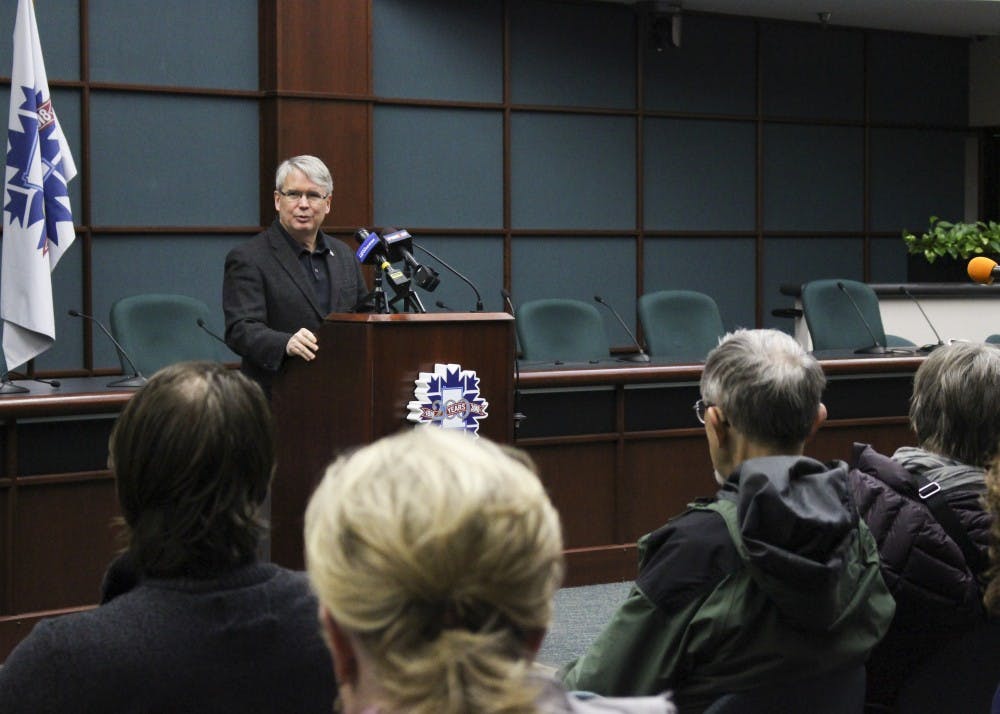Bloomington United, a community anti-hate group originally founded in 1998, announced its revival Wednesday morning at a joint press conference with the City of Bloomington.
“Now, with what is going on in the world, it is time to make sure that we are active again,” co-chair and Hillel director Sue Silberberg said in an interview.
After national events such as the neo-Nazi rally in Charlottesville and local commotion surrounding the on-campus protest of conservative speaker Charles Murray last spring, Silberberg and co-chair Doug Bauder began thinking about reviving the group.
Over the past three or four years, Bloomington United has somewhat dispersed because the city hasn’t faced the same level of hate that it did in the past, Silberberg said. Instead, the new concept will be to serve as a preventative force against hate groups and discriminatory actions.
Bauder, the director of the LGBTQ+ Culture Center, said Bloomington United has stayed alive among the people who were involved in the past.
“Some amazing friendships have been formed that continue to this day,” Bauder said.
The group first began in 1998 when Ben Smith, a member of the World Church of the Creator, a neo-Nazi group, began distributing hate literature in the Bloomington community.
In July 1999, Smith went on a shooting spree across Illinois and Indiana that resulted in the killing of IU graduate student Won-Joon Yoon. One of Bloomington United's first major acts was to organize a rally for Yoon.
“Out of this sad, sad incident, there’s been a lot of effort to come together to create understanding,” Bauder said.
Back then, Bloomington United also responded to a hate group spreading messages in Peoples Park against members of the Muslim, Jewish and LGBT communities, Silberberg said. People pledged to donate money for every minute the group stayed in Bloomington, and the funds they raised were donated to charities that supported the minority groups.
Silberberg said other fundraising efforts at the time brought in enough money to pay for more than 10,000 yard signs for the community.
On one side they read, “No hate, not in our yards, not in our town, not anywhere,” and on the other side “Bloomington UNITED in diversity.”
The signs were signals that members of the community would not stand for the intolerance they saw, Silberberg said.
“It set the tone for what kind of community we are and it let people know that we weren’t just going to stand idly by,” Silberberg said.
For Silberberg, one of the original founders of the group, the desire to stand up against hate stems from how she was raised. Because of her knowledge of the history of the persecution of Jewish people in Egypt, she said she knew she needed to advocate for the equal treatment of all people.
“As a Rabbi, I believe we have a responsibility to stand up for those who need protected,” Silberberg said.
Bauder said his involvement with Bloomington United helped him understand more about the communities around him than he would have otherwise.
People are connected through their many identities, he said, and Bloomington United recognizes the importance of everyone’s experiences.
“If we’re not valuing each other," Bauder said, "We all lose something in the process."




